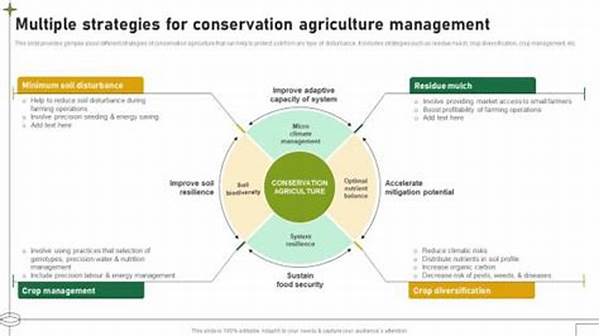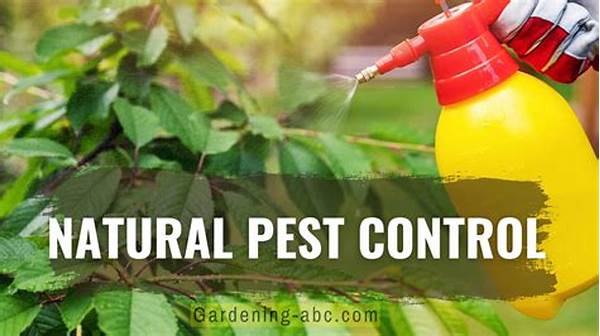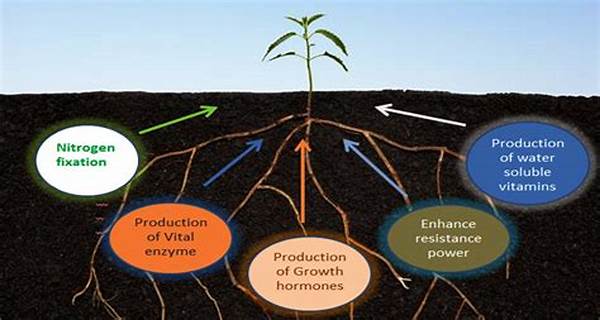In a world where the balance of nature is increasingly threatened, the responsibility of preserving our environment lies with each one of us. For farmers, this duty becomes even more crucial. Sustainable farm management is not just a trend but a necessity for ensuring the health of our planet and the prosperity of future generations. By adopting innovative methods, farmers can increase productivity while maintaining ecological balance. Now is the time to embrace techniques for sustainable farm management that promise a healthier ecosystem and a brighter future for agriculture.
Read Now : Organic Farming And Public Health
The Importance of Sustainable Practices
The techniques for sustainable farm management are essential not only for environmental preservation but also for securing long-term agricultural success. Modern farmers face numerous challenges including climate change, diminishing soil quality, and water scarcity. However, sustainable techniques offer practical solutions. For instance, crop rotation and diversification can enhance soil fertility and reduce pests, while no-till farming helps in retaining water and reducing erosion. Moreover, integrating livestock with crop production creates a balanced ecosystem that maximizes productivity while minimizing waste. By implementing these practices, farmers not only contribute positively to the environment but also enhance the longevity of their farming business. Every farmer who opts for sustainability is investing in a future where agriculture thrives without compromising the planet’s health.
Sustainability in agriculture is not just about resisting harmful practices but actively fostering methods that encourage resilience. Techniques for sustainable farm management like agroforestry and the use of renewable energy sources are pivotal. By choosing renewable energy, farms can significantly reduce their carbon footprint and operational costs. Agroforestry, on the other hand, enhances biodiversity and improves microclimates, which benefits crop production. Furthermore, protecting water resources through efficient irrigation systems ensures that this precious resource is conserved for future needs. Embracing these measures cultivates an environment where farms can flourish sustainably, leading to healthier food production that meets the needs of a growing population while preserving our natural resources.
Key Techniques for Sustainable Farming
1. Crop Rotation and Diversity: Embrace crop rotation to prevent nutrient depletion and pest accumulation, ensuring long-term soil health. This technique is a cornerstone of sustainable farm management, helping in reducing chemical input needs.
2. Conservation Tillage: Minimize soil disruption by adopting conservation tillage. This technique preserves organic matter and improves soil structure, conserving resources and boosting productivity sustainably.
3. Integrated Pest Management: Use natural predators and biological products as part of pest control. It reduces reliance on chemical pesticides, promotes ecological balance, and exemplifies techniques for sustainable farm management.
4. Organic Farming Practices: Adopt organic methods that avoid synthetic fertilizers and pesticides. It improves soil quality and ecosystems, making farms more sustainable and resilient to environmental changes.
5. Agroforestry: Combine trees with crops or livestock to enhance biodiversity and improve farm sustainability. This creates a balanced ecosystem and is a powerful technique for sustainable farm management.
Embracing a Greener Future
Sustainable farm management techniques do more than preserve natural resources; they pave the way for a revolutionary approach to agriculture. By adopting these methods, farmers increase their operational efficiency while contributing to global sustainability efforts. Imagine a future where farms are thriving ecosystems, harmonizing with nature rather than depleting it. Techniques for sustainable farm management are the key to unlocking this vision. Transitioning to sustainable practices involves an initial investment but promises generous returns through increased productivity, reduced costs, and ecological health.
Implementing these sustainable techniques may seem daunting initially, but the long-term benefits far outweigh the challenges. Gradual adaptation and education can ease this transition for farmers. Programs and workshops exploring techniques for sustainable farm management provide valuable insights and practical applications tailored to specific farming needs. As more farmers make this vital shift, the cumulative impact becomes significant, contributing to global efforts against environmental issues like climate change and biodiversity loss. The journey toward sustainable agriculture may be arduous, but it is a journey well worth taking for the betterment of the planet and the prosperity of coming generations.
Implementing Sustainable Solutions
The successful adoption of techniques for sustainable farm management can revolutionize the agricultural landscape. It requires not just individual effort but communal cooperation to create a ripple effect in promoting sustainable agriculture. Community involvement provides a robust support network for information exchange, motivation, and resource sharing. As farmers unite in their pursuit of sustainability, they set the stage for innovations and solutions tailored to unique environmental footprints.
Encouraging local governments and organizations to sponsor and promote sustainable practices makes a substantial difference. Investment in research and development helps refine existing techniques for sustainable farm management, aligning agricultural practices with environmental objectives. Domestic and global agricultural policies should also reflect the importance of sustainability, encouraging wide-scale adoption of eco-friendly practices. The future of farming is in our hands, and by working collectively, we can steer it towards a sustainable path, ensuring food security and environmental harmony.
Techniques for Everyday Application
1. Efficient Water Use: Prioritize water conservation through drip irrigation and rainwater harvesting. Sustainable farm management thrives on judicious water use that ensures the longevity of water resources.
2. Soil Conservation: Utilize cover crops to prevent soil erosion and nutrient loss. This technique not only preserves soil health but also enhances farm productivity sustainably.
3. Renewable Energy Use: Transition to solar panels or biofuels for energy needs. By reducing reliance on fossil fuels, farms can significantly lower their environmental impact and operational costs.
Read Now : Diy Non-toxic Pest Solutions
4. Biodiversity Enhancement: Introduce diverse plant and animal species to improve ecological balance. Biodiversity acts as a buffer against pests and diseases, a fundamental aspect of sustainable farm management.
5. Nutrient Recycling: Implement composting and manure management to recycle nutrients back into the soil. It reduces the need for chemical fertilizers and supports the natural nutrient cycle.
6. Community Collaboration: Engage in cooperatives that promote shared resources and knowledge. They provide the necessary support for implementing effective sustainable farm management techniques.
7. Technology Integration: Leverage sensor technology and data analytics for precision farming. This increases efficiency and limits resource waste, aligning perfectly with sustainability goals.
8. Reducing Chemical Inputs: Opt for natural pest deterrents and fertilizers to maintain ecological integrity. Lesser chemical reliance enhances biodiversity, promoting healthier farm ecosystems.
9. Training and Education: Regularly participate in workshops and seminars on sustainable practices. Knowledge dissemination is powerful in transforming traditional farming into sustainable ecosystems.
10. Policy Advocacy: Support policies and initiatives that encourage sustainable agricultural practices. Strong advocacy strengthens the movement towards worldwide sustainable farm management.
Winning Hearts for Sustainable Agriculture
Sustainability in agriculture is not just a technical challenge but a cultural change that must be embraced wholeheartedly. Techniques for sustainable farm management offer a roadmap to a future where agriculture does not impede but nourishes the world. By engaging with the public and raising awareness of the benefits of sustainable farming, we drive a cultural shift that values environmental stewardship alongside agricultural productivity.
Farmers are the frontline warriors in this battle for sustainability. By sharing their success stories and innovations in sustainable practices, they inspire others to embrace similar methods. Educational programs and community events that highlight techniques for sustainable farm management create a shared vision for a greener future. As public sentiment shifts towards sustainable choices, the demand for sustainably produced food rises, encouraging more farmers to adopt eco-friendly practices. This collective approach becomes a driving force in the global shift towards sustainable agricultural practices.
Empowering the Next Generation
The future of sustainable agriculture lies in the hands of the next generation. Education remains a vital tool in equipping them with the skills and knowledge to implement techniques for sustainable farm management. Integrating environmental science and sustainable agriculture into school curriculums ensures that children grow up with a deep understanding of these practices. Innovative contests and projects encourage students to think creatively about solving agricultural challenges sustainably.
Mentorship programs connecting seasoned farmers with younger ones foster the sharing of practical knowledge and sustainable techniques. By fostering an environment of learning and adaptation, we prepare the next generation to lead the agricultural sector into a sustainable future. When the youth are empowered and informed, the journey toward achieving sustainable farm management accelerates, making the dream of a harmonious balance between agriculture and nature a promising reality.



